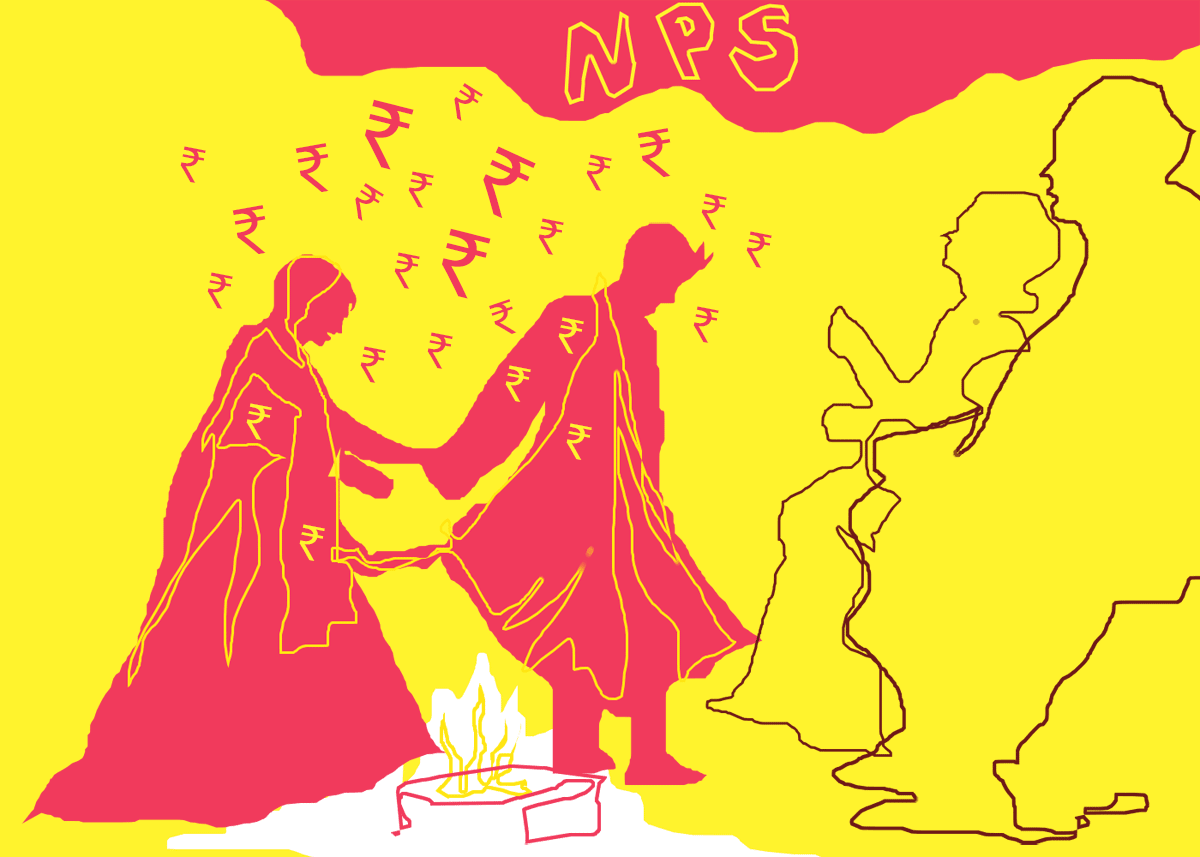Ramalingam Kalirajan dives into the specifics of National Pension Scheme withdrawal rules to help you understand the conditions under which and when partial withdrawals are allowed.

Have you ever wondered what makes the National Pension System (NPS) a top-notch retirement plan for everyone? Why from government employees to self-employed individuals, private sector employees, and the general public, they all like it?
The NPS, a government-backed scheme, offers a versatile and efficient way to save for your retirement, ensuring financial security during your golden years. But what happens if you need to access your funds before retirement?
Let's dive into the specifics of NPS withdrawal rules and understand the conditions under which partial withdrawals are allowed.
Why Choose NPS?
The NPS stands out due to its structured investment approach. Your contributions are strategically invested in a mix of equity, corporate bonds, and government securities, depending on your chosen plan.
The auto choice option tailors the investment mix according to your age, reducing equity exposure as you get older. This flexibility allows you to align your investment strategy with your risk tolerance and financial goals.
Can You Withdraw Money from NPS?
Yes, you can! While the primary purpose of NPS is to serve as a retirement fund, it does offer provisions for partial withdrawals under specific circumstances. However, it's essential to understand the rules and limitations associated with these withdrawals.
When Can You Make Partial Withdrawals? What is the lock-in period for NPS withdrawal?
Partial withdrawals are allowed only after completing three years of contributions. Even then, you can only withdraw up to 25 per cent of your own contributions. Withdrawals from the employer's contribution or the interest earned on the entire fund are not permitted.
Moreover, you can make partial withdrawals only for certain specified reasons and up to three times during your lifetime. Here's a detailed look at the scenarios where partial withdrawals are allowed:
- Children's Higher Education: Need to pay for your child's college or university fees? You can withdraw funds for your children's higher education expenses, including legally adopted children.
- Children's Marriage: Covering the costs of your child's wedding can be overwhelming. NPS allows you to withdraw funds to manage these expenses, ensuring your child's special day is memorable.
- Buying or Building a House: Dreaming of owning a house? You can use NPS funds to purchase or construct a residential property. This reason is among the most common for partial withdrawals.
- Serious Illness: Medical emergencies can strike without warning. For severe illnesses like cancer, kidney failure, or major accidents, you can withdraw funds to cover treatment costs.
- Disability Expenses: If you face a situation where a medical condition prevents you from working, NPS funds can be used to manage medical and living expenses.
- Skill Development and Self-Employment: Planning to upgrade your skills or start a business? NPS allows withdrawals to support these career-enhancing activities.
- Starting Your Own Business: Got an entrepreneurial spirit? You can tap into your NPS savings to kick start a new business or a startup.
Are There Any Tax Benefits?
The 25 per cent of the withdrawn amount is exempt from income tax, providing financial relief when you need it the most.
A Word of Advice
While the NPS provides flexibility for partial withdrawals, it's crucial to remember that it's primarily a retirement savings vehicle.
Withdrawing funds should be a last resort and only for significant, unavoidable expenses. By keeping your NPS corpus intact, you ensure a stable and secure retirement future.
In summary, the NPS is designed to be a robust retirement plan with the flexibility to address critical financial needs.
By understanding the withdrawal rules, you can make informed decisions about managing your funds, ensuring you balance immediate financial requirements with long-term retirement goals.
- You can ask rediffGURU Ramalingam Kalirajan your questions HERE.
Ramalingam K, an MBA in Finance, is a Certified Financial Planner. He is the Director and Chief Financial Planner at holisticinvestment, a leading financial planning and wealth management company
Disclaimer: This article is meant for information purposes only. This article and information do not constitute a distribution, an endorsement, an investment advice, an offer to buy or sell or the solicitation of an offer to buy or sell any securities/schemes or any other financial products/investment products mentioned in this article to influence the opinion or behaviour of the investors/recipients.
Any use of the information/any investment and investment related decisions of the investors/recipients are at their sole discretion and risk. Any advice herein is made on a general basis and does not take into account the specific investment objectives of the specific person or group of persons. Opinions expressed herein are subject to change without notice.












 © 2025
© 2025